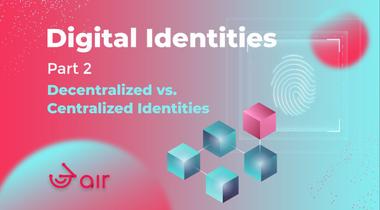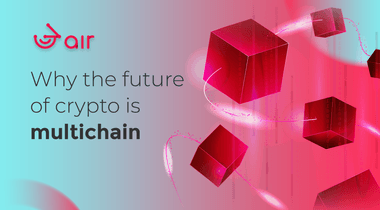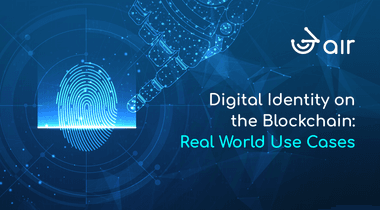DIDs and privacy
Privacy is probably the most important aspect of DIDs. The current ID system inevitably reveals your identity every time you use it. Every time you show your ID card to someone there is at least your name and your address written on it. Be aware that privacy does not mean anonymity.
Proving you’re of age
Maybe you don’t care about privacy, but you should. What if you are a young woman entering a night club needing to show your ID to the bouncer at the door to prove you are of age. You never know who that person might be. He now knows where you live… scary thoughts.
There is another way though. What sovereign identities allow you is to share your information without actually revealing it. In our case all that the bouncer really needs to know is if you are older than 18 years and that is a YES or NO questions. He doesn’t even need to know how old you are let alone what you name is or where you live.
With DIDs the bouncer can have a device display a QR code that you scan and in return he only gets a green checkmark or a red X with maybe your image to be able to know that you’re not using someone else’s ID. Or you could just use your biometrics to be able to validate you own the used data.
Providing a driver’s license
The same goes for the policeman verifying you have a drivers license. He doesn’t need your personal info; he just needs to know if you own the correct license to operate the vehicle or not. Again, a YES or NO answer should be provided. He does not need to know your personal info until there is reasonable suspicion you did something wrong and they need to find and sanction you. Up to that point your full privacy should be preserved and you should only be a hash, but if needed that hash should provide your personal information to authorized personnel. Each such data access needs to be recorded on chain so that unauthorized or unjustified access can be sanctioned.
This is the difference between privacy and anonymity. And again, we are not at the stage where this can be handled in a decentralized way. And we probably agree that some enforcements are still needed for a civil society. There are rules we want people to abide to for us to be able to live in a safe and livable world. Maybe we are even paving the road into a decentralized legal and enforcement system. Afterall it is about keeping social and moral norms that should reflect peoples opinions. A lot to unpack there on a philosophical level.
Voting and absolute anonymity
Although anonymity should not always be ensured, there are use cases where it is absolutely crucial that under no circumstances your identity should and can be revealed. Just imagine governmental elections. You don’t want others to know how you voted and this includes your government. To really be able to exercise free will fully, voting in absolute anonymity needs to be guaranteed. Voter anonymity is also referred to as unlikability and up until now there was no technology that could enable this.
Non-anonymous voting systems are prone to retribution, bribery, discrimination and peer pressure. If no one can truly know how you voted it makes no sense to bribe you or threaten you. Also, your boss can’t discriminate you on the basis of your political views.
Of course, a fully anonymous voting system would be prone to manipulation as votes could magically appear out of thin air. How could a system know you already voted if the vote can never be attributed to you.
To ensure anonymity while still making it impossible to cast multiple votes, zero knowledge proofs need to be utilized. They allow to identify yourself without anyone being able to connect your vote to your identity. In a sense it even prevents you from being able to prove how you voted yourself. Yes, such technologies exist, and the trust lies in te code and if the code is deployed in a decentralized, trustless environment you can be certain it will always and only do what it’s designed to do.
This is the power of true sovereign identities.










